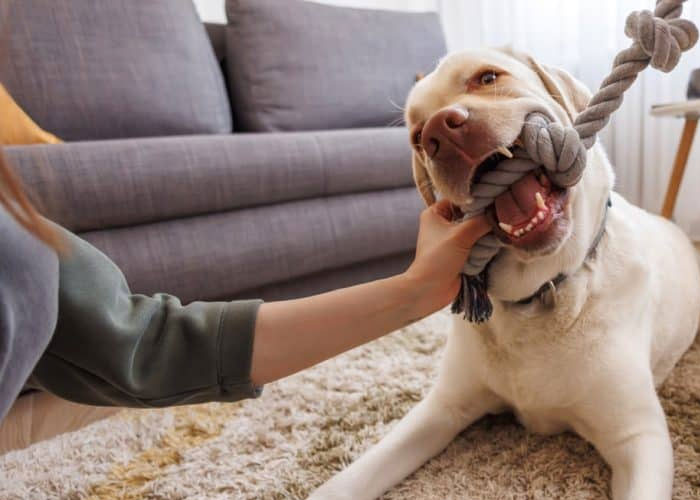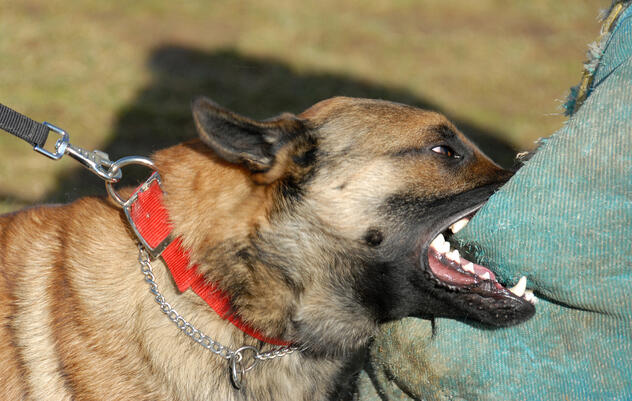Rabies and Other Infectious Diseases Transmitted by Dog Bites
Dog bites are a common injury, with over 4.5 million dog bites occurring in the United States each year. While most dog bites are relatively minor, a bite can potentially transmit serious and even fatal infectious diseases. Being aware of the risks and taking proper precautions after a dog bite is essential.
Rabies
Rabies is one of the most serious viral infections transmitted by dog bites. Rabies attacks the central nervous system and causes inflammation of the brain, leading to symptoms like aggression, excessive salivation, paralysis, and phobias. Without treatment, rabies is almost always fatal.
Symptoms and Transmission
The rabies virus is transmitted through the saliva of an infected animal. It enters the body through broken skin or mucous membranes, usually via a bite. Rabies has an incubation period of 2-8 weeks before symptoms begin. Early symptoms include fever, headache, weakness, and discomfort at the wound site. As the disease progresses, neurological symptoms emerge like anxiety, confusion, hallucinations, and insomnia. This progresses to more aggressive behavior, uncontrolled muscle spasms, seizures, paralysis, and eventually death.
Prevalence and Risk
While human rabies cases are rare in the U.S., with only 1-3 cases per year, the risk still exists. Wild animals like raccoons, skunks, foxes and bats are the most common carriers. However, domestic dogs can transmit rabies too if they are infected.
While any dog is capable of having rabies, some dogs pose a higher risk. Stray dogs that are not properly vaccinated have an increased risk of rabies infection. Dogs that spend time outdoors, especially in rural areas with wild animals, may also be at higher risk. Additionally, dogs that exhibit strange behavior or signs of neurological problems could potentially have rabies.
Prevention and Treatment
The key to preventing rabies is vaccination. Dogs should receive routine rabies shots on the schedule recommended by their veterinarian. If you are bitten by a dog that could be infected, the wound should be thoroughly washed. Medical care should be sought immediately to assess rabies risk and determine if post-exposure treatment is needed.
Post-exposure treatment involves receiving the rabies vaccine as well as rabies immune globulin near the wound site. This helps neutralize the virus before it can spread through the nerves. Anti-rabies treatment is highly effective at preventing the disease if it is given promptly after exposure. If untreated, rabies has a nearly 100% fatality rate once symptoms start.
Pasteurella
In addition to rabies, dog bites may transmit a bacterial infection called pasteurellosis. Pasteurella is a type of bacteria commonly found in the mouths of dogs and cats. An estimated 50% of dog bite wounds become infected with Pasteurella.
Symptoms and Transmission
Pasteurella can be transmitted through a dog bite wound. Within the first 24 hours, the area around the bite develops redness, swelling, and pain. Pasteurella can also spread into deeper tissues, causing an infection called osteomyelitis in the bones or septic arthritis in the joints.
Later symptoms of a Pasteurella infection include fever, headache, and lymph node swelling as the body fights off the infection. Abscesses filled with pus may form under the skin around the bite wound as it progresses.
Prevalence and Risk
Although Pasteurella causes a localized wound infection, it can become serious if left untreated. Young children, the elderly, and those with weakened immune systems are most at risk of developing complications. People with underlying medical conditions like diabetes, cancer, or chronic illnesses have an elevated risk as well.
While any dog bite could develop a Pasteurella infection, bites that tear or puncture the skin are more likely to become infected. Bites to the face and hand have some of the highest infection rates. Deep puncture wounds from a dog’s teeth also increase Pasteurella infection risk.
Prevention and Treatment
If you have been bitten, immediately washing the wound with soap and water helps lower infection risk. Seeking medical care quickly allows assessment of the bite severity and need for antibiotic treatment. Without treatment, Pasteurella infections can spread and cause serious complications like joint infections or blood poisoning.
Pasteurella is treated with antibiotic pills or topical antibiotic ointments. Taking the full antibiotic course, usually 7-10 days, helps eliminate infection. Some bite wounds may need surgical irrigation and drainage if an abscess develops. Monitor the wound for signs of worsening infection and follow up with a doctor if not improving.
Capnocytophaga
Capnocytophaga are also bacteria transmitted through dog bites and scratches. Capnocytophaga is found naturally in a dog’s saliva but usually does not cause problems in healthy dogs. However, in humans, capnocytophaga infections can become severe or even fatal in some cases.
Symptoms and Transmission
Capnocytophaga bacteria enter the body through contact with a dog’s mouth via bite wound, licking broken skin, or even just close proximity. Infections usually develop within 2-3 days. The affected area reddens, swells, and is painful. Other symptoms include headaches, muscle aches, vomiting, and diarrhea as a high fever sets in.
In rare cases, capnocytophaga can spread to the bloodstream and cause septic shock. Those with weakened immune systems are more susceptible. Capnocytophaga can also travel to the brain, causing meningitis or brain abscesses.
Prevalence and Risk
While capnocytophaga infections are less common than other dog bite pathogens, the results can be devastating when they occur. People with decreased immunity, chronic medical problems, or no spleen are at highest risk. However, even healthy individuals can develop capnocytophaga meningitis or septicemia.
Dogs with capnocytophaga in their mouths appear normal. There is no way to tell by looking if a dog carries or sheds the bacteria. While most infections are mild, capnocytophaga requires close monitoring after a dog bite to watch for signs of progression.
Prevention and Treatment
Preventing capnocytophaga infection involves promptly washing any dog bites or scratches with soap and water. Those at high risk may require preventative antibiotics after minor dog injuries. If an infection develops, intravenous antibiotics are used to treat septic infections. However, the mortality rate for capnocytophaga septicemia remains over 25%.
Other Infections
Additional bacterial infections like staphylococcus, streptococcus, clostridium, and E. coli can result from a dog bite wound as well. Dog and cat bites have higher infection rates than bites from other animals due to the specific bacteria in their mouths. Wounds should always be checked by a doctor, even if they seem minor.
Signs of a worsening bite infection include increasing pain, swelling, redness, heat, red streaks, swollen lymph nodes, fever, chills, and discharge from the wound. Seek prompt medical attention if these symptoms appear. Proper wound cleaning, antibiotics, and sometimes surgery may be required.
Contact Us for a Free Consultation
If you or a loved one has suffered an injury from a dog bite or animal attack in Georgia or South Carolina, contact our personal injury law firm for a free case review with our experienced dog bite attorneys. Let our legal team help you obtain the compensation you deserve while we handle all the details.
Visit one of our offices at:
- 7176 Hodgson Memorial Drive, Savannah, GA 31405
- 320 East Clayton Street, Athens, GA 30601
- 197 14th St. NW, Suite 200, Atlanta, GA 30318
- 110 Traders Cross #226, Okatie, SC 29909
Or call now for a free consultation on (800) 529-1441.
Ready to Talk to a Lawyer Who Has Your Back?
Contact The Brown Firm
Get the Answers and Compensation You Deserve
You’ll notice the difference when you contact The Brown Firm! Our local dedicated attorneys want to help you recover and rebuild.
Schedule your free consultation by calling (800) 529-1441 or completing our simple online form.




